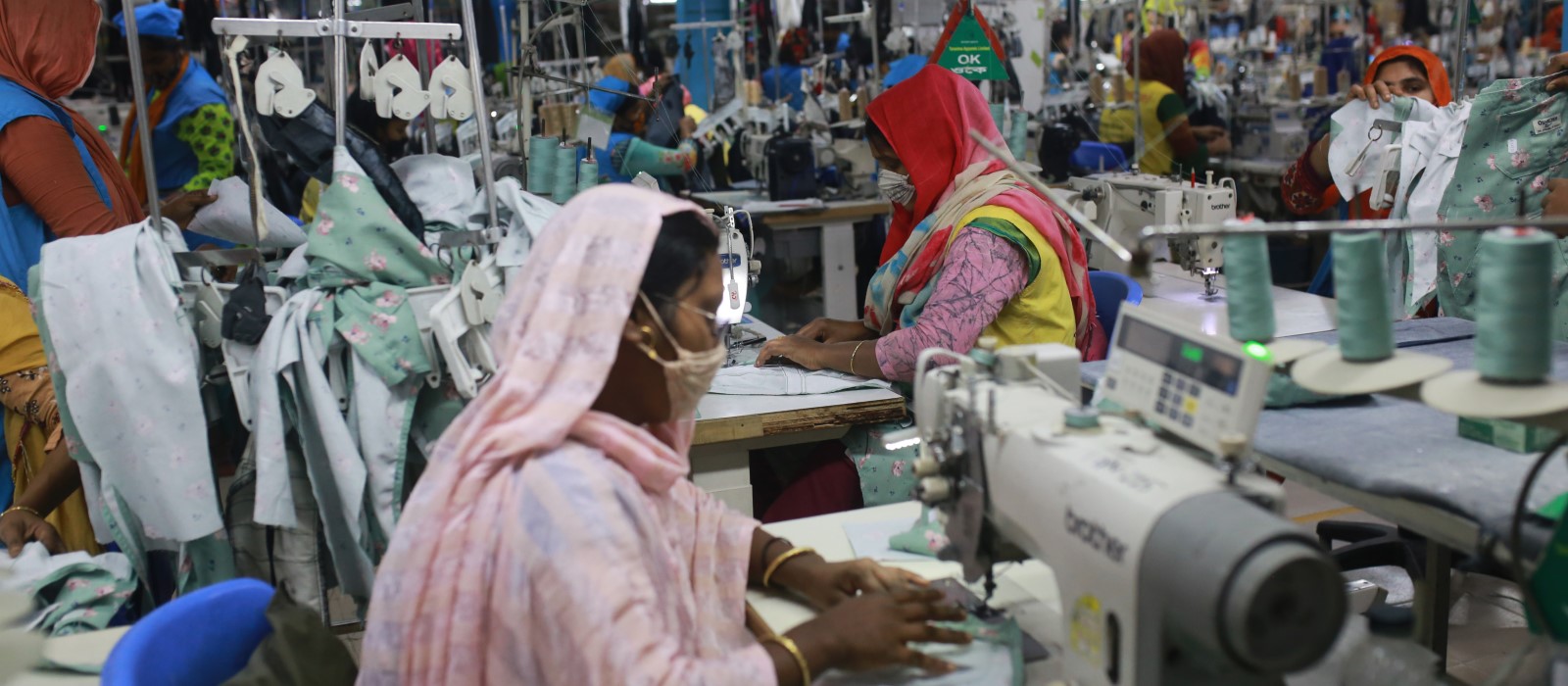What Are Workers Willing to Pay for Safe Work?

Workers at garment factory in Dhaka, Bangladesh | Rehman Asad via Adobe Stock
Study Context
Poor workers in developing countries generally work in harsh and often unsafe conditions. These conditions can have adverse health, cognitive, and psychological impacts on workers that contribute to keeping them and their families in poverty (Blattman and Dercon, 2017). In Bangladesh’s ready-made garment (RMG) sector, the effects of poor working conditions are readily apparent. Bangladesh received extensive international attention following the 2013 Rana Plaza building collapse that killed 1,150 garment workers and injured thousands of others. A key question is the extent to which workers are aware of workplace risks, and if they are not aware of certain risks, how information about these risks would influence their employment decisions.
Study Design
The research entailed an information randomized-control trial (RCT) that alleviated an information asymmetry about factory safety between garment workers and factories and studies the effects of information about factory safety on workers’ decisions about where to work as well as their reported levels of workplace-related perceived risks, stress, trust. This project tested the hypothesis that information asymmetry about safety in the workplace constrains workers’ abilities to make optimal decisions about where to work. In the study, the treated group of workers was provided with the results of safety audits conducted of their factory and numerous factories nearby. The RCT tested whether this information affects workers’ decisions about where to work and to refer family and friends to work. It also tested whether the information affects workers’ perceived risks at work, stress and anxiety at work, and trust in managers.
Results and Policy Lessons
The researchers first show that garment workers do not perceive how risky their workplace is, as measured by objective building safety audits. The team then randomly provided information about their factories’ safety from the audits. They study the effects on workers’ decisions about where to work as well as their reported levels of workplace-related perceived risks, stress, and trust. The findings will have important health and labor policy implications for developing countries. If improved information about factory safety affects workers’ decisions about where to work and/or where to refer family and friends to work, it would suggest that governments, entrepreneurs, or non-governmental organizations in developing countries have a role to play in addressing this market failure.

